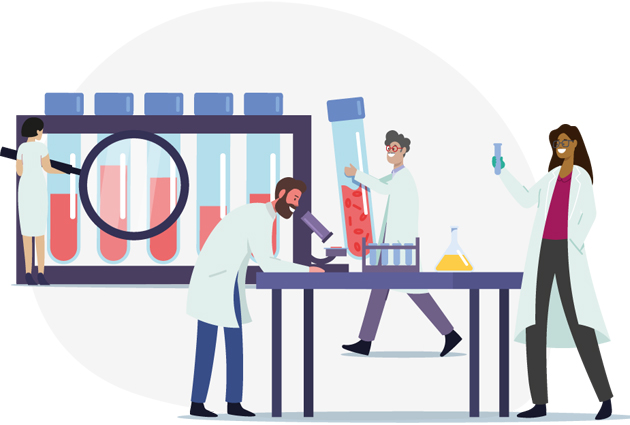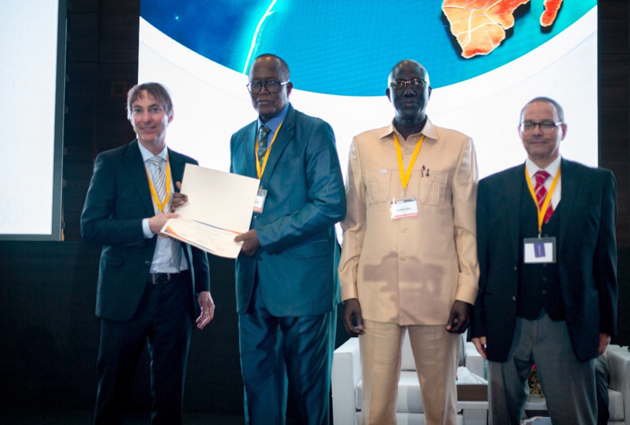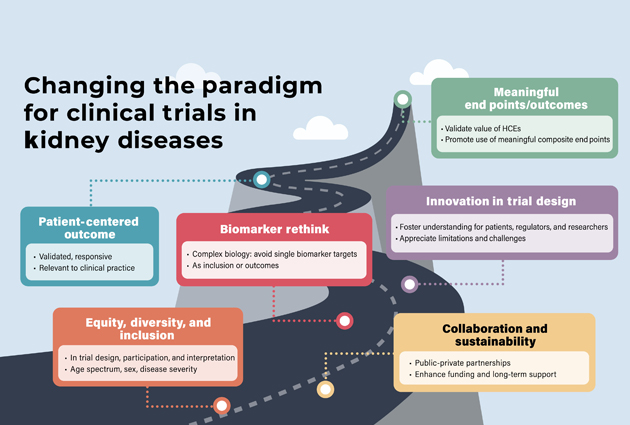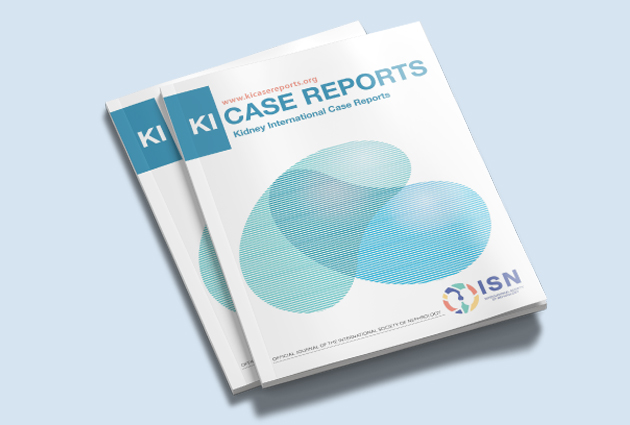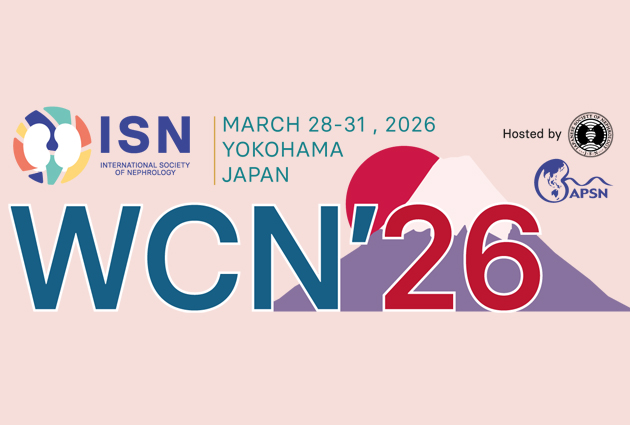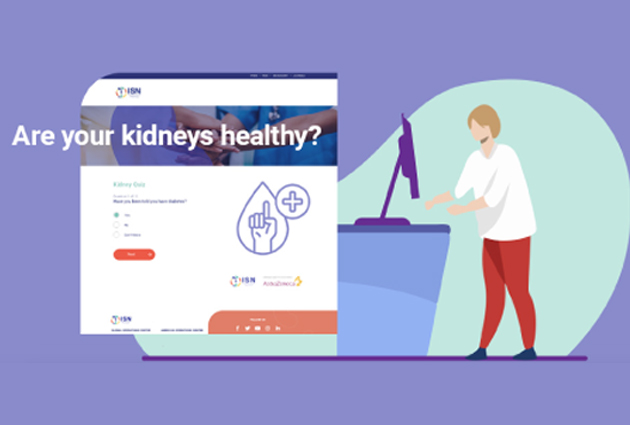ISN Impact: Educational Ambassadors Program
The ISN Educational Ambassadors Program (EAP) was launched in 2009 to provide renal centers in developing countries with visiting international experts, recognized by the ISN, to provide specific hands-on training and help develop new skills or services needed in the host institution.
Through this program, centers around the world receive the guidance needed to develop new services and community-based research or screening programs.
For one to four weeks, Educational Ambassadors visit an emerging center to help lay the groundwork for a potential long-term collaboration between the host center and the ISN ambassador, extending the mentorship via teleconferences or videoconferences where necessary.
ISN Ambassadors advise on clinical cases and research, assist in the implementation of new projects and initiatives in the emerging centers, as well as help empower local professionals, including nurses and technicians, to improve the quality of life and survival rate of patients. Some host centers have started dialysis programs after the visit of the ISN ambassador.
The overall impact of the program is demonstrated through these recent collaborations made possible through the EAP.

Dr Picca gives training to staff at Bambino Gesù Hospital.
Dr Stefano Picca, pediatric nephrologist and former Head of Dialysis Unit at Bambino Gesù Children’s Hospital in Italy, has been an active ISN Educational Ambassador often linking his educational role to the Saving Young Lives project.
In 2018, Dr. Picca collaborated with Laurence Adonis-Koffy at Abidjan’s Centre Hospitalier Universitaire in Yopougon, Ivory Coast, to design a much-needed lecture on pediatric acute kidney injury, its causes, and treatment.
In 2019, he joined forces with Younoussa Keita, one of only two trained nephrologists at Hôpital Aristide Le Dantec in Senegal, to hold a week-long course specifically focused on training doctors and nurses in hemodialysis and peritoneal dialysis treatment for children with acute kidney injury, providing guidance that was central to setting up a long-awaited pediatric unit.

Dialysis and transplant training session at Yangon Children’s Hospital, Myanmar.
In 2018, Dr Yi Yi Khin, from Yangon Children’s Hospital (YCH) in Myanmar, organized an EA visit from Ambassador Kar Hui Ng from the National University of Singapore. Dr. Ng spent a week at the host center to give training in dialysis and transplantation and to provide local medical professionals with the confidence and infrastructure to perform their first pediatric renal transplantation.
This event was widely featured in the local press bringing it to the attention of Burma’s Ministry of Health who pledged to increase resources into pediatric nephrology.
Dr. Ng commented on her greatest reward from the visit: “The big smile on the transplanted patient!”, explaining that the young patient “no longer has to stay in the hospital for years to receive chronic hemodialysis. She can go home and go to school.”

Dr. Martin Lewis (far right) with staff members at University of
Port Harcourt Teaching Hospital (UPTH) in Nigeria.
Dr. Martin Lewis (far right) with staff members at University of Port Harcourt Teaching Hospital (UPTH) in Nigeria.
ISN Educational Ambassador Malcolm Lewis, pediatric nephrologist at the Royal College of Surgeons in Ireland, gave two weeks of training, organized by Dr Felicia Elke, at the University of Port Harcourt Teaching Hospital (UPTH) in Nigeria in August 2019, as a follow-up to previous visits in 2015, 2017, and 2018.
Instruction focused on formal nephrology teaching, detection and prevention of renal disease with a community focus, and practical clinical nephrology with teaching and practice on the wards. Dr. Lewis’ prolonged visit enabled him to oversee the complete management of some patients and, thus, directly impacted the quality of their care.
Dr. Lewis helped develop a pediatric Renal Registry for Nigeria in collaboration with a local registry committee. All 38 pediatric units in Nigeria are now enrolled. Data entry tools were created on a secure website, easily accessible by mobile phone, and data collection began on September 1, 2019.
This data is an invaluable tool for securing state and federal funding for the service. The response to the project from the Transplant Association of Nigeria was so favorable that Dr. Lewis was asked to assist with the development of an adult registry.
According to Dr. Lewis, the presence of an Ambassador in UPTH allowed the translation of standard practices into what was feasible with available resources, commenting: “I can vouch for the value of having an experienced pediatric nephrologist going to places of limited resources and working through problems with the local teams…on the ground, dealing with problems as they occur is enlightening and can lead to innovative solutions as well as a strategic plan for development.”
The University of Port Harcourt Teaching Hospital in Nigeria is also in a partnership with a center in New York and another one in the UK as part of the ISN SRC Program.

Rea Judit Jerabekne Vegh (center right) demonstrating hemodialysis techniques to nurses
at the Charak Memorial Hospital (CMH) in Nepal.
Rea Judit Jerabekne Vegh (center right) demonstrating hemodialysis techniques to nurses at the Charak Memorial Hospital (CMH) in Nepal.
Rea Judit Jerabekne Vegh, a registered nurse from Diaverum and Guys and St Thomas NHS Hospital in the UK, spent two weeks as an ISN Educational Ambasssador at the Charak Memorial Hospital (CMH), in Pokhara, Nepal, in November 2019. The visit was organized by Dr. Klara Paudel from the host institution.
The aim of the EAP visit was to increase the quality of care in the dialysis center and to provide advanced training to nurses at CMH, empowering them to become leading trainers in the region who are able to make decisions and suggestions concerning their patients and mentor junior staff.
The training centered on hemodialysis and focused on advanced techniques, improvements, and infection control. New techniques, procedures, and infection control measures were implemented immediately improving overall trouble-shooting and critical thinking capacity and positively affecting patient safety.
An interactive theory and practice training course was organized as part of the EAP visit to include nurses from other centers within the region. A patient education program for dialysis patients, “Positive Thinking on Dialysis,” also took place addressing diet, tiredness, and positive thinking. This event appeared in the local newspaper because of the favorable impact it had on the patients.
According to Rea Vegh, the nurses were eager to learn and responded positively to the encouragement to follow new procedures and to become confident enough to make decisions and try new approaches in case of problems. She comments that a highlight of her experience at CMH was: “To see the staff accepting and understanding the new practice as they took the initiative, and from one day to another, started to use some new techniques proving that their critical thinking has improved.”
Rea Vegh plans to establish a WhatsApp group with the nurses to share problems, solutions, and lessons learned. She hopes to visit again when the new unit is in operation saying: “It would be beneficial to spend a whole week on infection control, to help the senior management team with writing standard operating procedures, and start an auditing program.”

